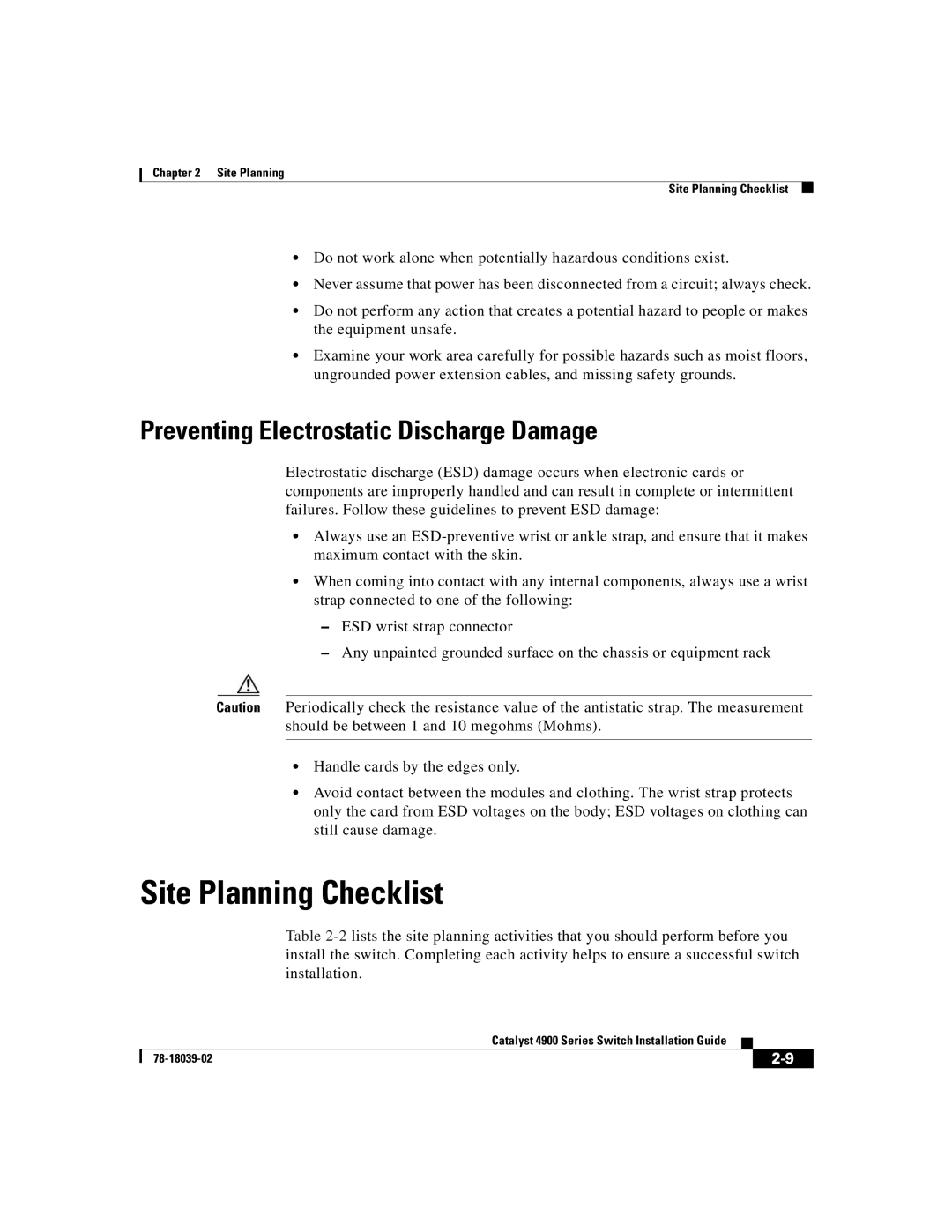
Chapter 2 Site Planning
Site Planning Checklist
•Do not work alone when potentially hazardous conditions exist.
•Never assume that power has been disconnected from a circuit; always check.
•Do not perform any action that creates a potential hazard to people or makes the equipment unsafe.
•Examine your work area carefully for possible hazards such as moist floors, ungrounded power extension cables, and missing safety grounds.
Preventing Electrostatic Discharge Damage
Electrostatic discharge (ESD) damage occurs when electronic cards or components are improperly handled and can result in complete or intermittent failures. Follow these guidelines to prevent ESD damage:
•Always use an
•When coming into contact with any internal components, always use a wrist strap connected to one of the following:
–ESD wrist strap connector
–Any unpainted grounded surface on the chassis or equipment rack
Caution Periodically check the resistance value of the antistatic strap. The measurement should be between 1 and 10 megohms (Mohms).
•Handle cards by the edges only.
•Avoid contact between the modules and clothing. The wrist strap protects only the card from ESD voltages on the body; ESD voltages on clothing can still cause damage.
Site Planning Checklist
Table
|
| Catalyst 4900 Series Switch Installation Guide |
|
|
|
|
| ||
|
|
| ||
|
|
|
